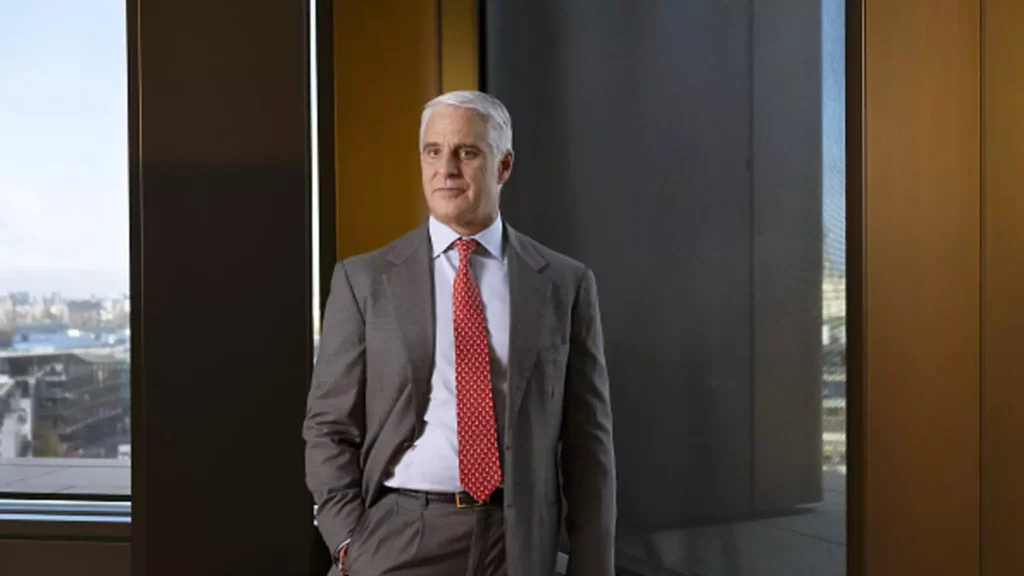As the Italian financial sector evolves, UniCredit’s CEO Andrea Orcel faces multiple challenges and opportunities that could redefine the landscape of banking mergers and acquisitions. With ambitions for both Banco BPM in Italy and Commerzbank in Germany, Orcel’s dual pursuits highlight the complexities and inherent risks of operating across multiple fronts—especially amid political turbulence and market fluctuations.
Taking on two major targets simultaneously poses significant risks for Orcel and UniCredit. The historical context is essential; Orcel has been a pivotal figure in the banking sector, previously responsible for the controversial breakup of ABN Amro in 2007. This background makes his current ambitions resonate strongly within financial circles, as he seeks to position UniCredit as a formidable player in the European banking market. However, analysts caution that pursuing both Banco BPM and Commerzbank could distract from core strategies, leading to potential overextension. Economy Minister Giancarlo Giorgetti aptly noted that “the safest way to lose a war is engaging on two fronts,” emphasizing the importance of focus in high-stakes negotiations.
While Orcel has made moves to build a stake in Commerzbank—an effort initially viewed as a counteraction to speculation about a merger between Commerzbank and Deutsche Bank—recent developments have cast doubt on the feasibility of this strategy. The German government’s resistance and the instability within Chancellor Olaf Scholz’s coalition complicate matters, particularly given the current political climate in Germany, which may not support aggressive consolidation efforts.
In the domestic context, Orcel has set his sights on Banco BPM, making a 10 billion-euro proposal that the bank has described as “unusual” and insufficient. The initial all-stock offer, valued at €6.657 per share, raises eyebrows; analysts believe that there is still room for Orcel to enhance the proposal, but with caution. Financial analysts like Johann Scholtz warn against excessive increases that could dilute shareholder earnings.
Increasing the cash component of the offer may be the key to gaining Banco BPM’s acceptance, as suggested by analysts such as Filippo Alloatti. With prior efforts in 2022 failing, Orcel’s repeated interest in Banco BPM signals a deep-seated strategic goal: to consolidate power within the Italian banking market. However, the looming threat of Banco BPM’s passivity rule—prohibiting actions that could endanger UniCredit’s bid without shareholder consent—casts a strategic shadow. This could limit Banco BPM’s own ambitions, such as a potential acquisition of Anima Holding, showcasing a unique interplay between rival institutions in a highly regulated environment.
UniCredit’s desire to pursue both Banco BPM and Commerzbank reflects a broader narrative within the banking sector, where consolidation can provide necessary synergies amid changing monetary policy landscapes. The current approach of easing interest rates increases vulnerability for banks like UniCredit that have limited exposure in asset management and bancassurance.
Consolidation is increasingly seen as essential for mitigating risk and creating resilience amidst financial uncertainty. A merger with Commerzbank, as JPMorgan analysts suggested, could streamline operations in capital markets and trade finance, granting UniCredit a stronger foothold in Germany. However, synergy is not guaranteed, as operational integration can often bring more challenges than anticipated.
Closer to home, the prospect of merging with Banco BPM offers a quick route to enhance asset management capabilities. Alloatti underscores that chasing domestic consolidation could represent one of the few remaining paths for UniCredit to maintain competitive pressure against Intesa Sanpaolo, Italy’s largest bank.
As Orcel navigates these turbulent waters, a pivotal decision lies ahead: should he commit to a path of aggressive acquisitions, or can UniCredit thrive independently? While both Banco BPM and Commerzbank are positioned as potential anchors for growth, analysts underline the need for disciplined decision-making. KBW analyst Hugo Cruz pointed out that UniCredit’s consistent performance and rising share price indicate that Orcel may not be under pressure to pursue an acquisition if it doesn’t align with strategic value.
The focus must remain on generating returns for shareholders, especially in the current climate of uncertainty and competition. As Orcel himself has indicated, the objective is to ensure any acquisition adds tangible value, rather than scrambling to consolidate for consolidation’s sake.
UniCredit’s current dual approach presents as much opportunity as it does risk. If managed effectively, Orcel’s strategies could strengthen UniCredit’s market position; however, a misstep may lead to a costly entanglement, diverting attention from building a sustainable solid foundation for growth within the volatile banking environment.

